Institute for Statistical Studies and Economics of Knowledge (original) (raw)


‘Be Prepared to Do Your Best Because Your Resilience Will Be Tested’
Maryann Asemota, from Nigeria, graduate of the Master’s in Science, Technology, and Innovation Management, now works as researcher at the HSE Institute for Statistical Studies and Economics of Knowledge (ISSEK). In an interview with the HSE News Service, she shared her experience of working at HSE University, her future plans, and gave some advice on pursuing a career in academia.
22 October

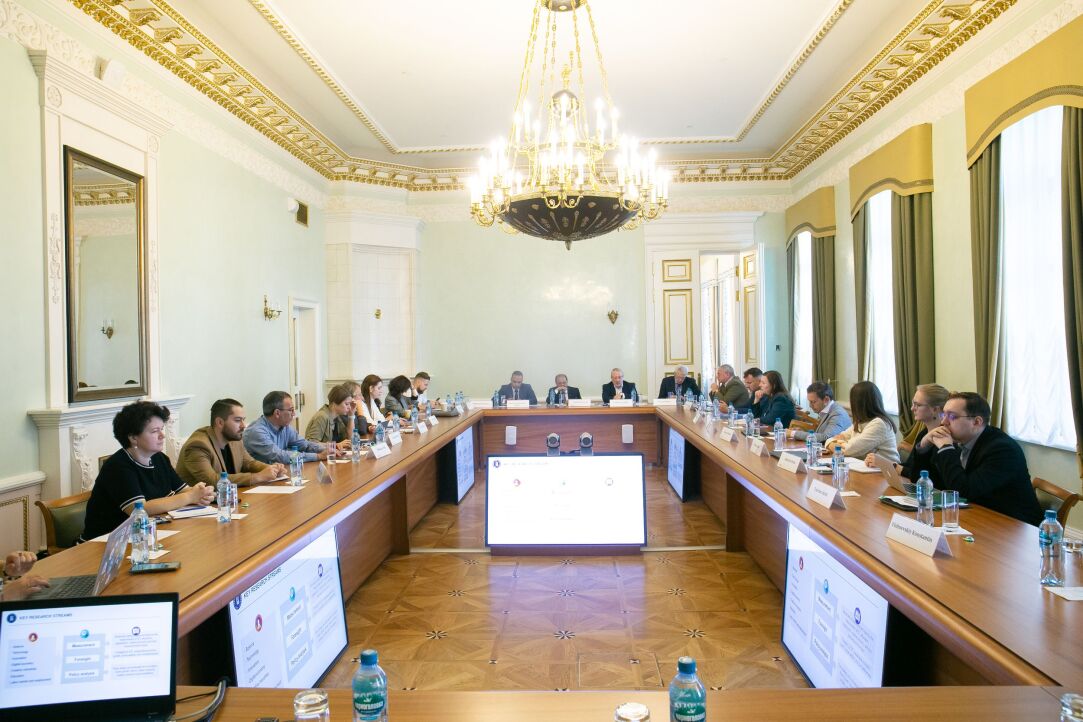
‘Geographical Distance No Longer a Problem’: ISSEK Fosters Cooperation with Think Tanks in BRICS Countries
In September, the HSE Institute for Statistical Studies and Economics of Knowledge hosted an international working meeting with representatives from Brazilian, Egyptian, and Indian think tanks. The participants discussed opportunities for cooperation, including joint surveys, comparative studies, databases, and publications on foresight, technology, and innovation. It was also decided to draft a multilateral agreement to establish the BRICS Foresight Association.
16 October

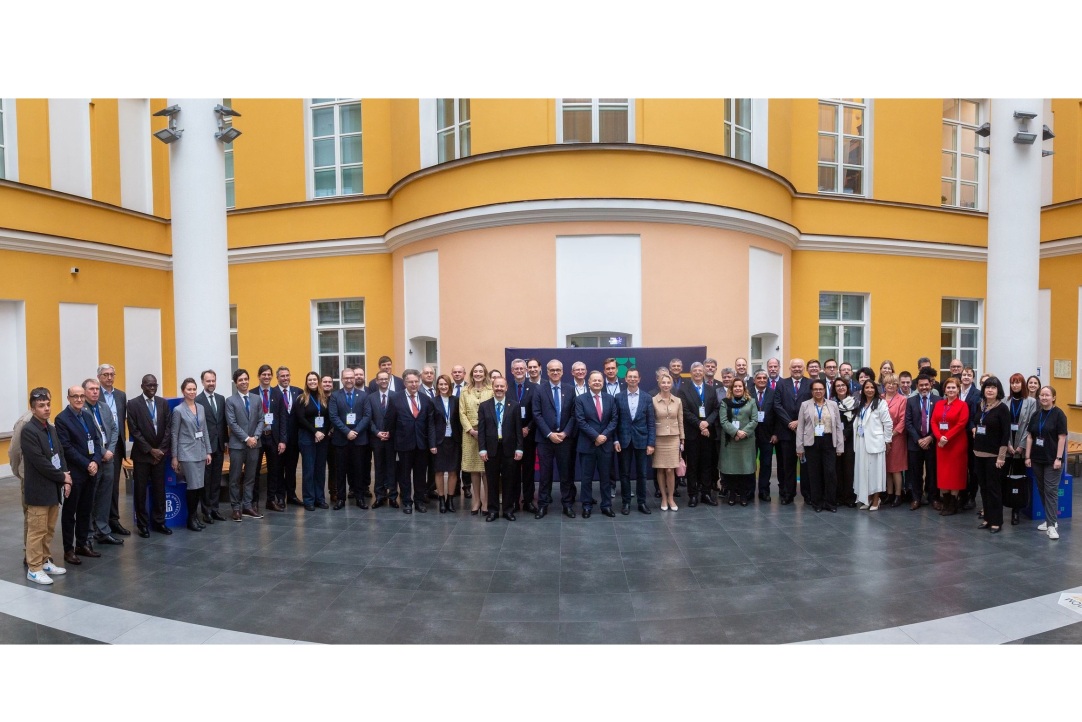
HSE University to Expand Cooperation with Brazilian Universities
On October 14, 2024, International Partnership Day Russia–Brazil took place at HSE University. The event was organised in collaboration with the Brazilian Embassy in Moscow and marked the first Brazilian academic and scientific mission to Russia, leading to the signing of cooperation agreements between HSE University and four Brazilian universities.
15 October

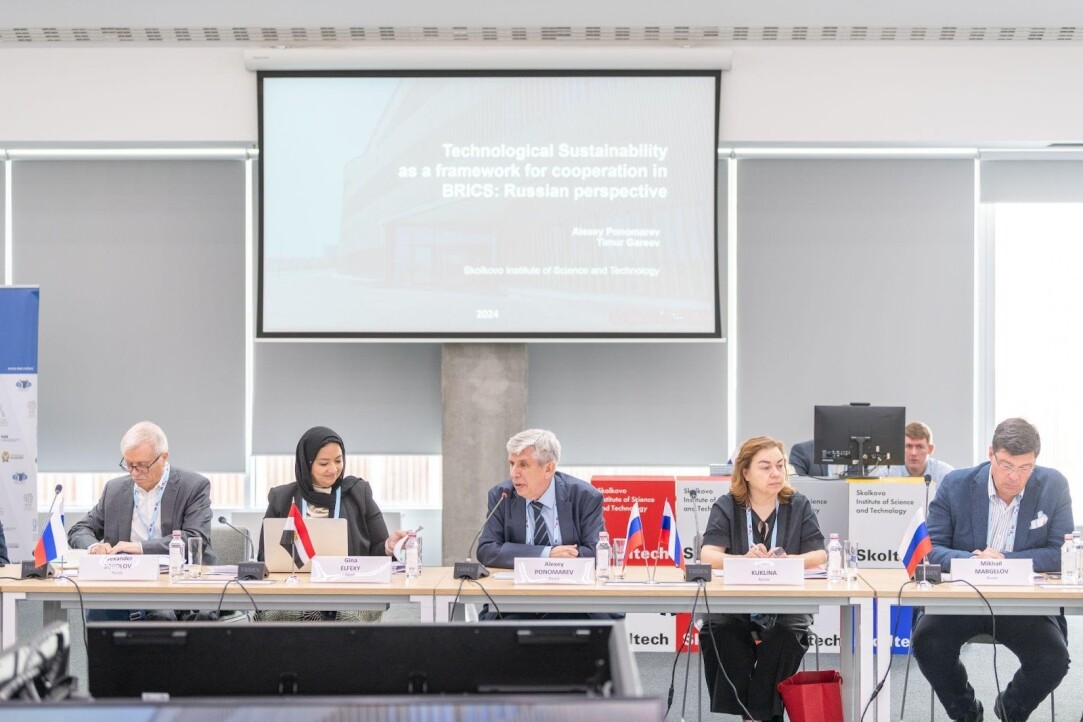
HSE Experts Take Part in the First International Workshop on Technological Sustainability of BRICS
On September 19–20, Skoltech hosted the First International Workshop on Technological Sustainability of BRICS: University-Industry Partnerships, organised jointly with HSE University Human Capital Multidisciplinary Research Center. The meeting was held as part of the BRICS working group on technology foresight and science and technology studies.
9 October


HSE University Releases Global Ranking of Top Cities for High-Tech and Creative Industries
Researchers at HSE ISSEK have released the third ranking of megacities based on their innovation attractiveness—HSE Global Cities Innovation Index 2024 (HSE GCII 2024). Moscow ranks ninth, while London, New York, and Tokyo lead the ranking. The top ten also include Beijing, San Francisco, Paris, Shanghai, Los Angeles, and Seoul. In addition to Moscow, 25 other Russian cities are among the top 1,000, including St. Petersburg (73), Novosibirsk (183), and others.
18 September

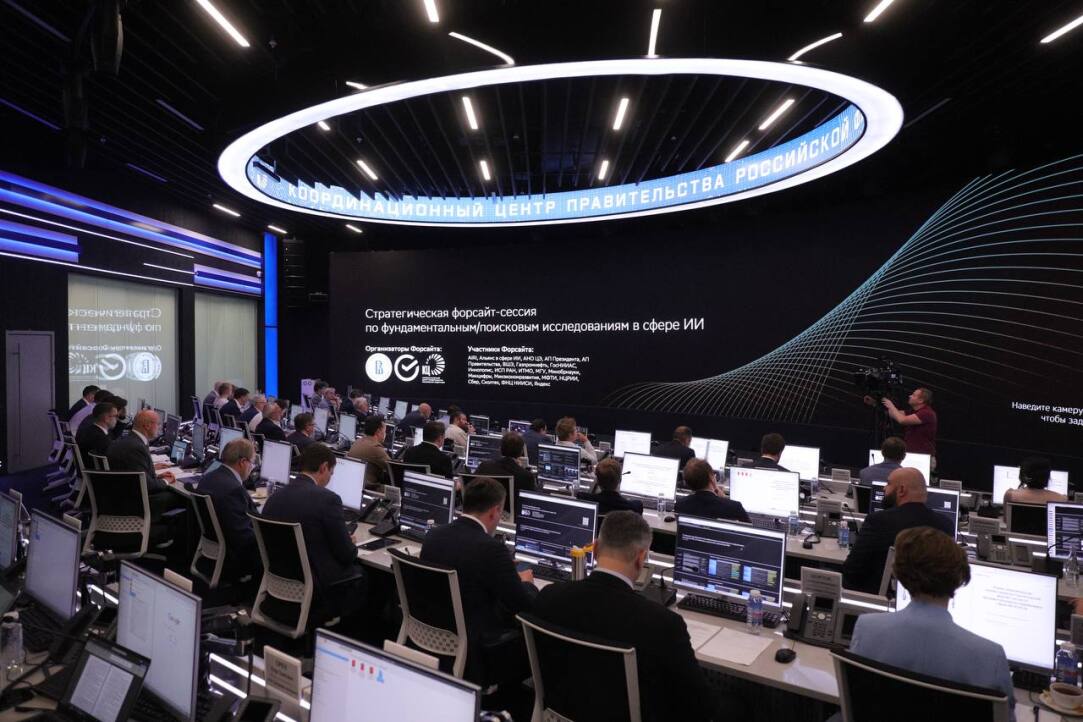
HSE University and Sber Conduct Foresight in Artificial Intelligence
HSE University, in collaboration with Sber, have conducted a foresight study on artificial intelligence (AI). Its early results were discussed by the participants of a strategic foresight session on exploratory research in AI, held at the Coordination Centre of the Russian Government, headed by Deputy Prime Minister Dmitry Chernyshenko. The results from the foresight study will inform the Unified Research and Development Programme in the Field of AI.
6 June

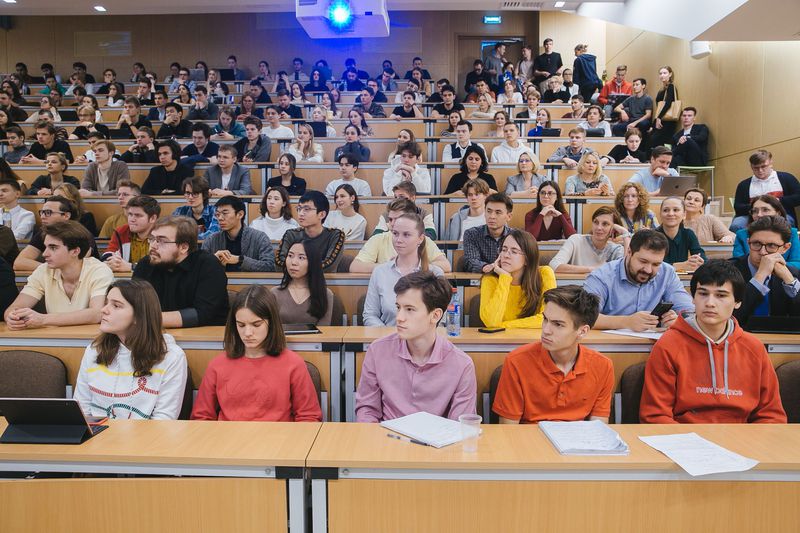
‘It Is Essential to Leave Home and Plunge into Deep Water’
The HSE University’s master’s programme in Science, Technology and Innovation Management and Policy is launching a double degree programme with the State University of Campinas (Unicamp), Brazil. Below, Dirk Meissner from HSE University, together with Bruno Fischer and Gustavo Salati from Unicamp, talk about the importance of academic knowledge for non-academic professions, the selection prerequisites for the programme, and the advantages of this type of cooperation for leading national universities.
27 April

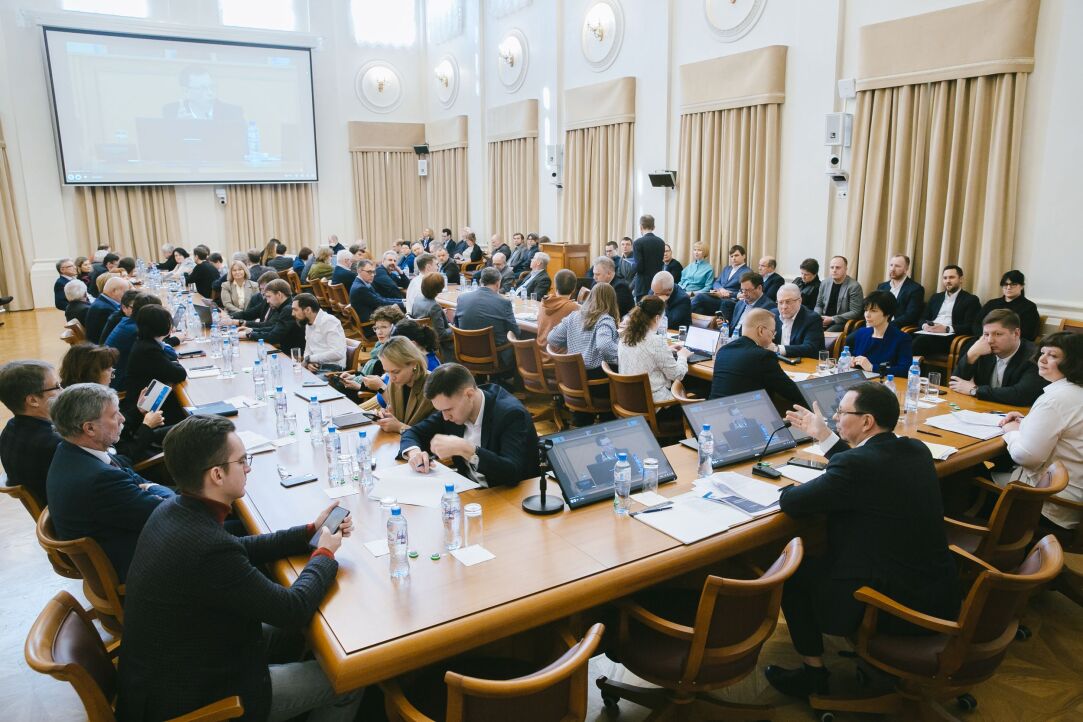
Newly-Elected HSE Academic Council Examines National Technological Priorities
On March 27, 2024 the first meeting of the newly-elected HSE Academic Council was held. The meeting approved the list and composition of commissions responsible for the preliminary consideration of issues prior to their inclusion in the Council’s agenda. The attendees also discussed Russia's technological priorities and outlined ways for university staff members to participate in addressing technological development challenges.
2 April

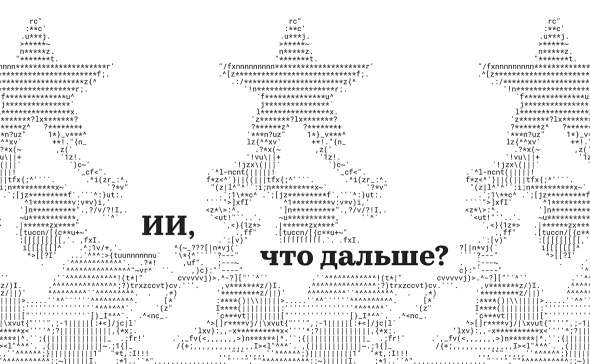
What Will 2024 Be Like? The Forecast by iFORA
RBC journalists decided to ask Russian artificial intelligence systems what 2024 will be like. Four leading Russian companies and HSE University took part in the project. The questions were answered by the iFORA big data intelligent analysis system developed by HSE ISSEK.
9 January


Artificial Intelligence as a Driver of Digital Transformation
In December, the HSE Institute for Statistical Studies and Economics of Knowledge and the HSE AI Research Centre participated in UNCTAD eWeek to discuss the future of the emerging digital economy. One of the topics discussed during the conference was artificial intelligence and its applications in driving the digital transformation of industry sectors. The session was co-organised by HSE University.
22 December 2023


A New Pocket Data Book Has Been Released in the ‘Digital Economy’ Series
The HSE Institute for Statistical Studies and Economics of Knowledge, in partnership with the Ministry of Digital Development, Communications and Mass Media of the Russian Federation and Rosstat, has released new pocket data book in the ‘Digital Economy’ series. The publication presents a wide range of indicators describing the state and dynamics of the digital economy development in Russia. For some indicators, international comparisons are available, and for the first time a section on the children and teenagers’ engagement in the digital environment is included.
13 January 2022

Moscow’s Creative Economy in Figures
This report presented by the Institute for Statistical Studies and Economics of Knowledge of the National Research University Higher School of Economics (HSE ISSEK) is dedicated to the statistical measurement of the creative economy of Moscow.
17 May 2021

Digital Economy : 2021
This pocket data book contains the most recent statistical data representing the level and dynamics of the digital economy development in the Russian Federation. International comparisons are provided for a number of indicators.
14 January 2021

‘Science. Technology. Innovation. 2021’
The main trends in the S&T and innovation development of Russia are presented in the Pocket Data Book ‘Science. Technology. Innovation. 2021’ developed by HSE ISSEK. The publication includes the most recent statistical data on R&D input and output, as well as international comparisons.
12 January 2021

Digital Economy: 2020
This pocket data book contains the most recent statistical data representing the level and dynamics of the digital economy development in the Russian Federation. International comparisons are provided for a number of indicators.
23 November 2020

Russian Regional Innovation Scoreboard. Issue 6
The Issue 6 prepared by the HSE Institute for Statistical Studies and Economics of Knowledge as part of Russian Cluster Observatory activities is dedicated to the assessment of innovation development of Russian regions on the basis of ranking scores.
30 October 2020

Science. Technology. Innovation: 2020
This pocket data book contains the main S&T and innovation indicators for the Russian Federation. The publication includes the most recent statistical data on R&D input and output, as well as international comparisons.
3 April 2020

Foresight and STI Governance no 3, 2019
The current issue of the Foresight and STI Governance journal is dedicated to the study of theoretical aspects and practical applications of the international innovation policy, assessing the innovatory potential of Russia’s cities and regions.
1 October 2019

Education in Figures: 2019
The pocket data book contains main indicators characterizing trends in the development of general, secondary vocational, higher education as well as vocational training and additional education in the Russian Federation. It also covers key education indicators for the OECD countries.
28 August 2019

Foresight and STI Governance no 2, 2019
The new issue of the Foresight and STI Governance journal is devoted to the impact of technological progress on employment prospects and the development of competencies. This problem is viewed from the perspective of employees, companies and regions.
8 July 2019


A New Pocket Data Book Has Been Released in the ‘Digital Economy’ Series
The HSE Institute for Statistical Studies and Economics of Knowledge, in partnership with the Ministry of Digital Development, Communications and Mass Media of the Russian Federation and Rosstat, has released new pocket data book in the ‘Digital Economy’ series. The publication presents a wide range of indicators describing the state and dynamics of the digital economy development in Russia. For some indicators, international comparisons are available, and for the first time a section on the children and teenagers’ engagement in the digital environment is included.
13 January 2022

‘Science. Technology. Innovation. 2021’
The main trends in the S&T and innovation development of Russia are presented in the Pocket Data Book ‘Science. Technology. Innovation. 2021’ developed by HSE ISSEK. The publication includes the most recent statistical data on R&D input and output, as well as international comparisons.
12 January 2021

Results of the Symposium 'Foresight and Science, Technology and Innovation Policy'
On 10–12 April, 2019 in the scope of the XX April International Academic Conference on Economic and Social Development at HSE, the Institute for Statistical Studies and Economics of Knowledge hosted the symposium 'Foresight and Science, Technology and Innovation Policy', and a number of other events. Members of the institute delivered several plenary reports on transformation of the economy and public administration due to digitisation, S&T cooperation in the EAEU, challenges for the regulation sphere in a situation of radical technological changes, and various other topics.This page presents the main results of the symposium: full texts of plenary reports, videos and reviews of key discussions, materials on specific presentations, and photos of participants.
16 May 2019

Facts about Students in Science
Research plays a growing role in the educational process of the country’s leading universities. The HSE Statement of Values, for example, underscores its importance, stating: ‘Our lectures and textbooks reflect cutting-edge academic research; our academic articles, student papers, models and experiments seek to expand the horizons of contemporary academic inquiry.’ In honor of Students’ Day, we present a selection of facts about the connection between study and science in Russian universities, and specifically at HSE. (Sources: Monitoring of Education Markets and Organizations (MEMO), Monitoring Survey of Innovative Behavior of the Population (MSIBP), additional materials of the Institute for Statistical Studies and Economics of Knowledge (ISSEK), as well as results of a survey by the HSE Centre for Institutional Research (CIR).
25 January 2019

Facts of the Year about STI in Russia
HSE ISSEK presents 10 main facts of the year, key indicators and estimates of the development of science, technology and innovation in Russia.
28 December 2018

25 Professions for the Future for which HSE is Training Students
The labour market is changing rapidly and radically. The changes are already apparent and are certain to become even more pronounced in the coming years. Accordingly, the question 'which professions are going to be in demand in 5-10 years’ time' becomes increasingly important: what qualifications should be acquired now to have labour market-relevant knowledge and skills upon graduation? The HSE Institute for Statistical Studies and Economics of Knowledge (ISSEK) experts addressed these issues in the scope of the targeted project to identify professions for the future.
11 June 2018

Pi Indicators
On the 14th of March, the world celebrates the 30th anniversary of Pi (π) Day. On this occasion, we examined how frequently this mathematical constant appeared in our publications. And there were a lot of such π-indicators.
14 March 2018

Facts about Science in Russia from HSE Research Studies
Science — a large branch of economics in which, the resources are consolidated, transactions are carried out, and significant units of scales are created — requires a consistent, and systemic description. For the past 15 years, the Institute for Statistical Studies and Economics of Knowledge (ISSEK) of the Higher School of Economics has been studying the state of science in Russia using a system of statistical indicators. ISSEK provides long-term foresight on scientific development based on foresight tools. On the occasion of the Day of science in Russia, HSE ISSEK issued two program publications — the infographic report "Russian Science and Technology in Figures" and data book "Science and Technology Indicators".
8 February 2018

ISSEK in 2017
In the building on Myasnitskaya Street (number 11) almost 200 employees of the Institute for Statistical Studies and Economics of Knowledge have spent 247 working days, or 1976 working hours, or 118,560 working minutes. The 2017 year was a threefold milestone: Higher School of Economics turned 25, HSE ISSEK turned 15, Foresight and STI Governance journal turned 10. Lots of challenges and achievements marked this triple anniversary.
29 December 2017